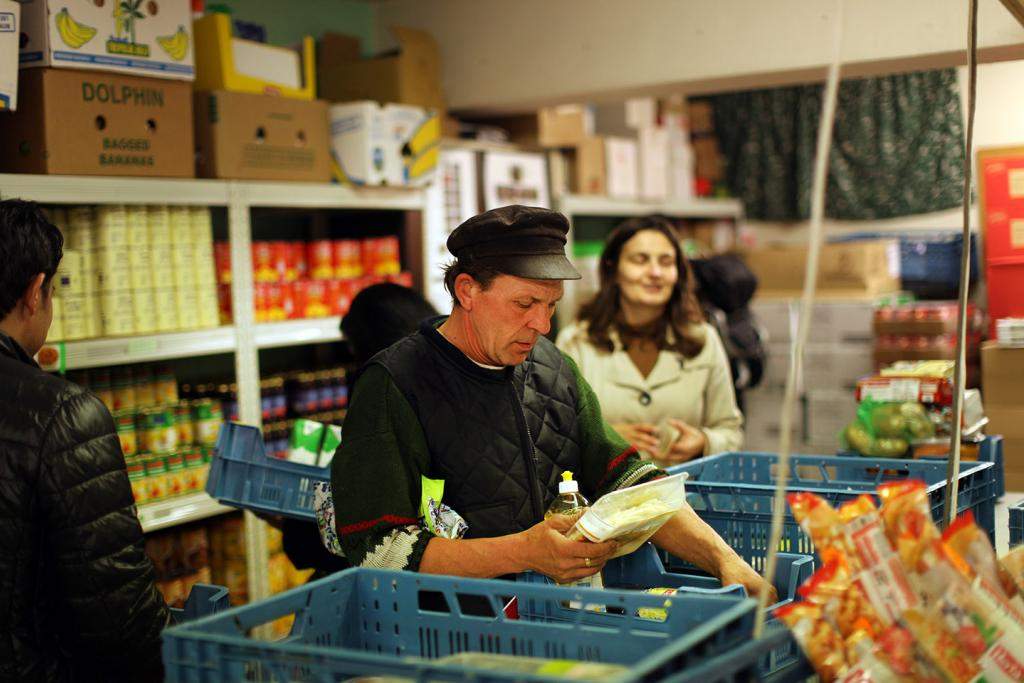In just one year, a 40% increase in the number of people seeking support from social services has been recorded by two networks that assist and provide services to millions of people in need, Caritas Europa and Eurodiaconia, based on a survey across 18 European countries.
The survey's findings are not surprising, it again underlines the way the current cost-of-living crisis is severely impacting the ability of people with low incomes, especially single parents, pensioners and young people, to cover basic needs like heating their homes, buying food or paying rent.
"Social service providers are bridging the gap between government support and the true cost of living for people experiencing poverty. Whilst our local centres will continue to support people in need across Europe, we need more investment to carry out our work," said Maria Nyman, Secretary General of Caritas Europa. "Social services are essential services, and they should be available, accessible and affordable for everyone."
The situation of people experiencing poverty is particularly difficult in Belarus, Belgium, Cyprus, Denmark, Finland, the Netherlands, Portugal, Scotland, Serbia, Sweden and Turkey.
Most critical consequences yet to come in 2023
Caritas Europa and Eurodiaconia represent 107 member organisations combined and are some of Europe’s largest social service providers, providing support to over 35 million people every year. In almost all of their member organisations surveyed, there has been a surge in the number of people receiving support since the start of 2022.
This increase has been particularly high for Caritas France, Caritas Finland and Stockholm City Mission, while one of Portugal’s dioceses cites a 90% increase. In Switzerland, Caritas estimates that half of the additional 40% of beneficiaries are those fleeing the war in Ukraine.
The organisations are now responding to this increase in demand for services by opening up warm spaces for people experiencing hardship and continuing to deliver more and adequate food support, clothing, homelessness services, financial support for housing and energy expenses, and debt counselling.
In Austria and Germany, the two organisations have volunteer experts who are committed to fighting energy poverty by advising low-income households, such as students and senior citizens.
To further support people, the organisations advocate for the introduction of social tariffs, energy efficiency improvements and food VAT reduction, but longer-term measures are also needed. Governments should urgently introduce or update minimum income schemes and minimum wages ensuring they are fair, improve access to affordable, adequate and low-emission housing, and make public transport more affordable.
Caritas Europa and Eurodiaconia fear that the most critical consequences of rising energy costs are yet to come in 2023, as people are already depleting their savings to cover the increased costs. They also underlined that the cost-of-living crisis is not only affecting households but also social service providers themselves: many are not receiving any government financial support or subsidies, which is leading to existential struggles for some.
Related News
- National Bank warns once again of 'unsustainable' public finances
- Belgians increasingly negative about their financial situation
- Six in ten Belgians suffering 'extremely harshly' from inflation crisis, study finds
"Some of our members are struggling a lot with inflation and, despite the increased needs and a harsh winter, some of their services might have to close soon," said Anne-Sophie Wislocki, Acting Secretary General of Eurodiaconia.
"Our member organisations are putting in place temporary measures by reducing office heating and reassigning funds, but there is a limit to what they can do if they want to continue operating their services and keep their facilities warm to provide care and shelter for people in need," she added.
The two networks call on the EU and European governments to take further action to support vulnerable households as well as to invest in not-for-profit social services providers, stressing that "immediate and targeted support" is needed to prevent more people from falling into poverty and to guarantee dignity and wellbeing for all.

